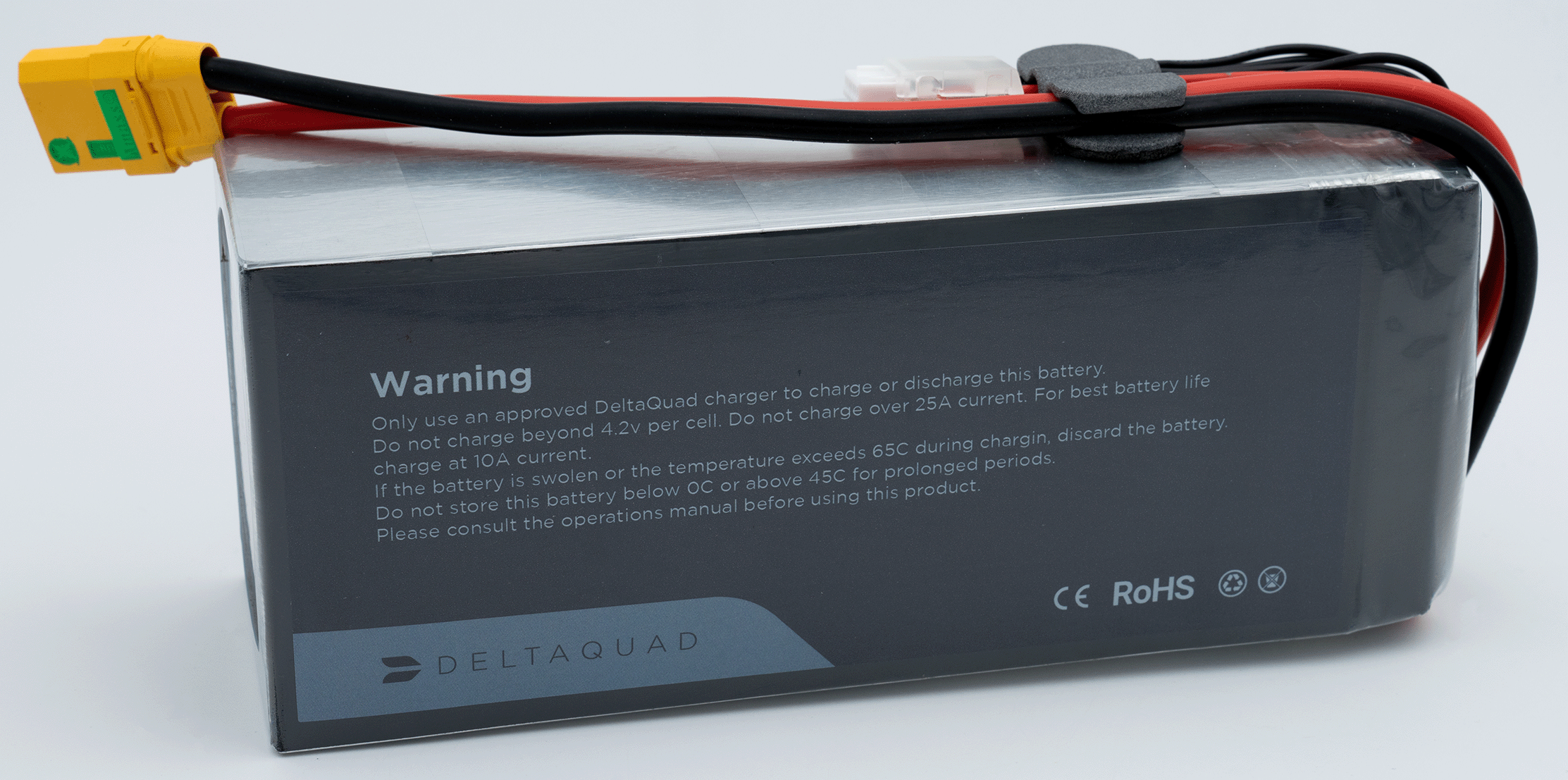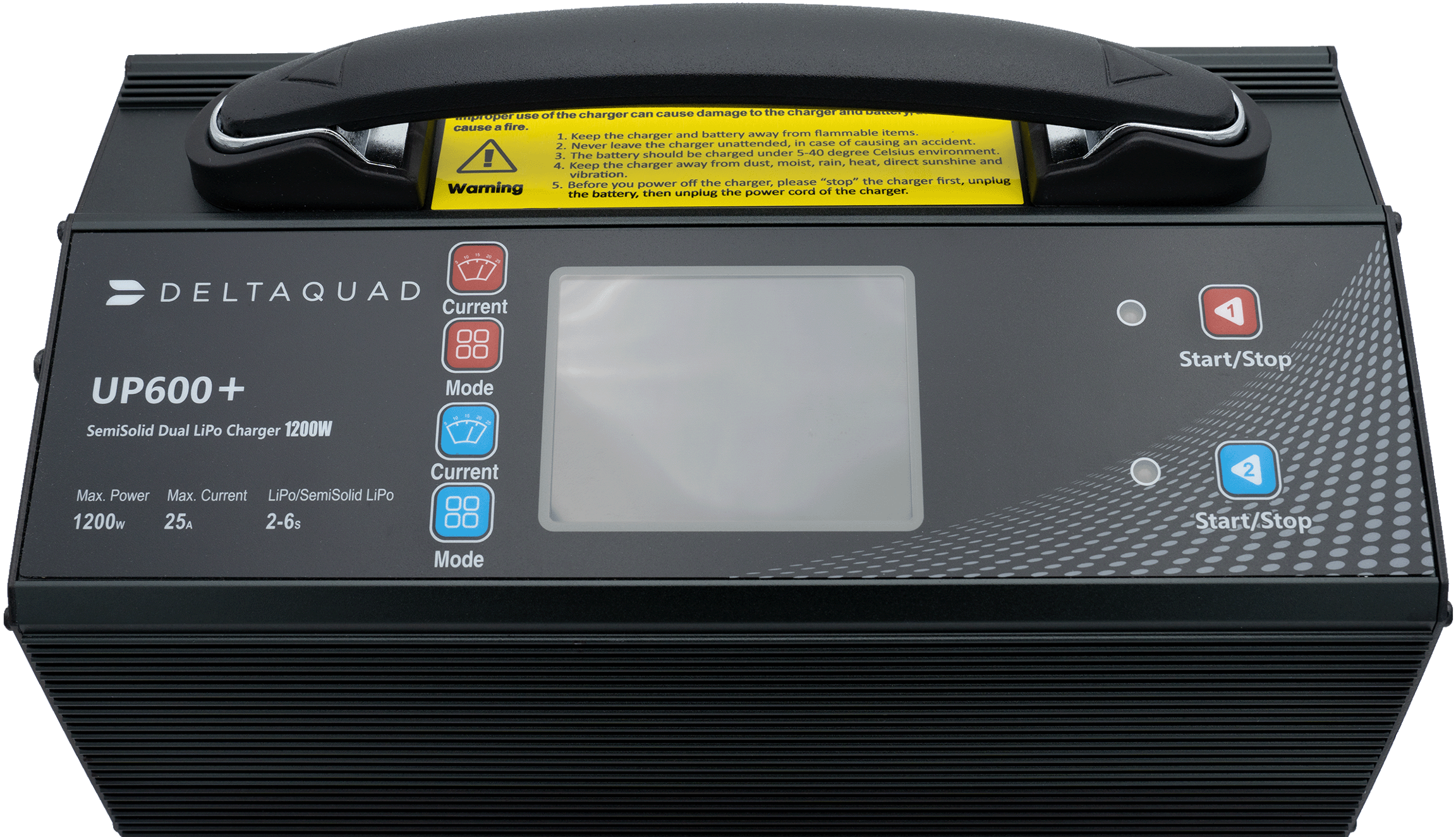Battery handling
This chapter will discuss how to properly handle the DeltaQuad Semi Solid-State Li-ion battery.
The DeltaQuad Evo is compatible with the DeltaQuad Semi Solid-State Li-ion battery. Using other batteries is not recommended and will impact your warranty.

Safety notice
Use only the DeltaQuad Dual Battery Charger. Do not use a NiCd or NiMH charger - Failure to do so may cause a fire, which may result in personal injury and property damage.

Never charge batteries unattended unless you charge inside a Battery Safe. When charging Li-ion batteries you should always remain in constant observation to monitor the charging process and react to potential problems that may occur.
If at any time you witness a battery starting to balloon or swell up, discontinue the charging process immediately. Disconnect the battery and dispose of it safely. Continuing to charge a battery that has begun to swell will result in fire. Likewise, never use a battery if you find it swollen or ballooned.
Since a delayed chemical reaction can occur, it is best to observe the battery as a safety precaution. Battery observation should occur in a safe area outside of any building or vehicle and away from any combustible material.
Wire lead shorts can cause a fire! If you accidentally short the wires, the battery must be placed in a safe area for observation for approximately 1 hour. Additionally, if a short occurs and contact is made with metal (such as rings on your hand), severe injuries may occur due to the conductibility of electric current.
A battery can still ignite even after 1 hour.
A battery that makes a hissing sound is almost certain to ignite. Consider your own safety and that of your environment before attempting any action
In the event of a crash, after a 15-minute period to ensure the battery was not compromised, you must remove the battery and dispose of it safely.
Only place the battery before the flight, and remove the battery directly after the flight. Always transport the battery in the dedicated compartment of the flight case or in a safe transportation unit such as a fireproof bag or storage container.